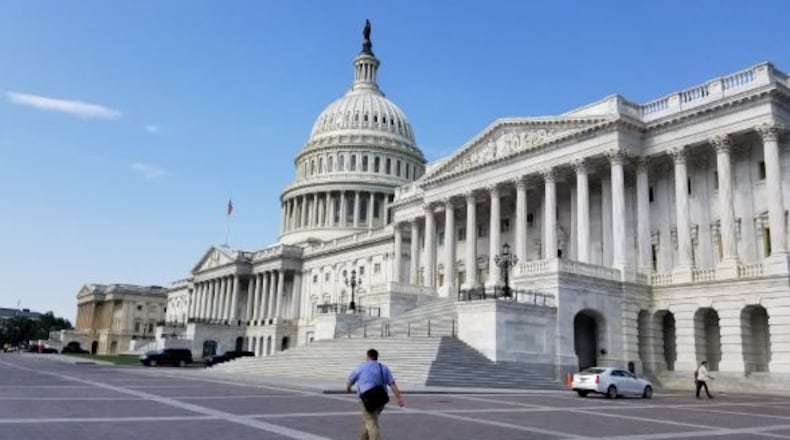A day after the Trump Administration threatened to add $200 billion in new tariffs against China in an escalating trade dispute, the Senate showcased bipartisan displeasure with Mr. Trump's tariffs on steel and aluminum imports from Canada, Mexico and the European Union, approving a non-binding motion indicating strong opposition to the President's trade actions.
"Let's be clear, this is a rebuke of the President's abuse of trade authority," said Sen. Jeff Flake (R-AZ), as a number of GOP lawmakers denounced the President's trade actions in blunt terms on the Senate floor.
"This is an abuse of Presidential authority," said Sen. Bob Corker (R-TN), as Republicans said the President's declaration of steel and alumnimum tariffs under 'national security' considerations has no legitimate grounds for support.
"We agree on taxes, we agree on regulations, we agree on judges," said Sen. Lamar Alexander (R-TN), "but these tariffs are a big mistake," as Senators complained they were raising prices for U.S. consumers and costing jobs for small businesses.
"The harmful effects that we feared have already begun," said Sen. Pat Toomey (R-PA), as he said companies in the Keystone State are already seeing their products lose a competitive edge because of the added cost of steel and aluminum products.
At issue is what is known as Section 232 authority to impose tariffs - based on a national security threat - which the President used to impose tariffs on steel and aluminum imports from Canada, Mexico and the European Union.
Instead of knuckling under, those trading partners have instead retaliated against the United States with new import duties on American exports - raising the prospect of a trade war involving U.S. allies, and a trade fight with China, as well.
"I think the most important question any of us can ask is where does this end?" said Sen. John Cornyn (R-TX), when he was asked about the President's latest threat to add another $200 billion in tariffs on Chinese exports to the U.S.
"The President wants to have a lot of leverage - and certainly these tariffs give him more leverage," Cornyn acknowledged. "But things can also escalate out of control."
But supporters of the President said Mr. Trump was right to be more aggressive in confronting trade partners, demanding that they open their markets to more American goods.
"This President is committed to creating a more level playing field for our workers and our companies here at home to compete," said Sen. David Perdue (R-GA), who has emerged as one of the staunchest defenders in the Senate of Mr. Trump's moves on trade.
"Like me, President Trump is an outsider to this political process," said Perdue in a speech on the Senate floor. "He's a business guy who has seen the impact of unfair trade practices in the real world."
But the impact of retaliatory tariffs by other nations - particularly against American agriculture products - has stirred strong opposition among lawmakers in both parties, one reason that Perdue was joined only by ten other Senators in the 88-11 vote.
As the vote concluded on the Senate floor, the Dow Jones average was down nearly 200 points - with much of that loss attributed to worries about tariffs and a possible trade war.
"I'm so glad that Congress is finally, finally pushing back on this," Sen. Flake said.
But what was approved by Senators was a non-binding parliamentary motion to instruct Senate negotiators to include language in a package of spending bills to take back some of the trade powers that Congress has delegated to the President over the last 50-plus years.
In other words - there is no guarantee that the House and Senate will actually do anything to put themselves in charge of tariff policies, as set out in Article I, Section 8 of the Constitution, which gives Congress the power to collect "Taxes, Duties, Imposts and Excises."
Backers of this effort, led by Sen. Corker, had tried to get a vote in the full Senate on the matter, but have been unable to force such a showdown - so this non-binding vote may be all they get.
About the Author
The Latest
Featured



